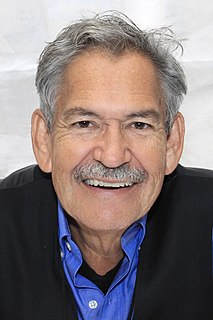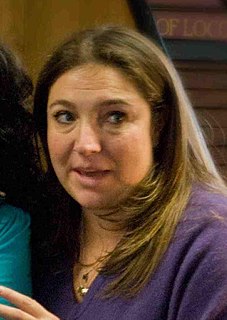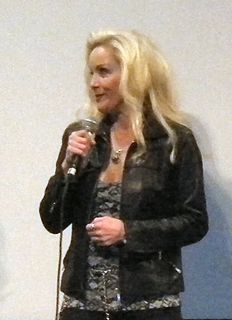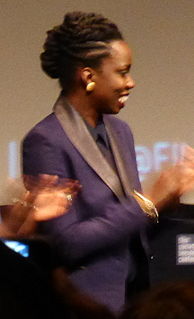A Quote by Benjamin Alire Saenz
Young men and women come of age when they look at their parents and see them not only as their parents but as people. They gain a lot of compassion, and it's easier to accept their flaws.
Related Quotes
I specially want to have young women not to wait as I did until my children were grown, but young women to come in to gain their seniority so they could be respected leaders at a much earlier age. It's important for all women to see young women who share their experience whether it's as a working mom with young children, who understands the struggle and the aspirations of young women in a similar situation. And if they don't have family and they're pursuing their career women should see that as well.
To me, the main difference between young people now and the people I was young with isn't so much style, it's the relationships they have with their parents. Their parents like them much more than ours liked us. Our parents weren't our friends. But now I see my friends on the phones with their, what, 30 - year - old kids? And they're talking about feelings.
You must learn to look at people who are angry with you straight in the eye without getting angry back. When children see their parents treating them this way, they then recognize the parents' authority. It speaks louder than words. Their new respect for the parents is as good for them as it is for the parents. It never works to demand respect of children. It must be given willingly as a result of strength of good character in the parents, which is manifested by their non-reaction to stress in the children.
I'm always astounded at the way we automatically look at what divides and separates us. We never look at what people have in common. If you see it, black and white people, both sides look to see the differences, they don't look at what they have together. Men and women, and old and young, and so on. And this is a disease of the mind, the way I see it. Because in actual fact, men and women have much more in common than they are separated.
Many men I come across see women in an antagonistic way, and it's always the basis for a bad relationship. What I mean by that is men who come with pre-conceived notions that women are trying to tie them down, or hold them back, or that women are shallow, or that women are only attracted to money, or whatever it is.
You're 25 and you're looking at adults of your parents' age and older saying, "I don't want to live that way," and this is how it happens. It evolves slowly and it's not the result of any movement. It's just young people look at the way their parents are living and if they don't like it they don't want to duplicate it.
I really put the fear of God into my son, because children are such sponges. The earlier you teach them the law of the land, the easier they'll accept it as an adult. I think parents who shelter their children are making a huge mistake. Kids are really pretty amazing. They can handle a lot. It's just us parents. We think we need to protect them, and then when the real world comes in, they're shattered. So I think I did the right thing in my parenting.
What I've found is that there is an enormous shift taking place in our society. Suddenly there are all young women who are better educated and earning more money than men their age. When young couples today decide to marry, they have very different expectations of one another than their parents did. And there's even been change at the very top of the career ladder. People tend to underestimate that.
I've gotten a lot of young gay kids come up to me and talk to me about how the little things I've said in the press has helped them come out to their parents, or just be open with who they are, and feeling invigorated by that. So that honestly means a lot to me to hear that the things that I say in the press, they do hear, and they see, and it helps them at least to start the conversation.
When I read the epitaphs of the beautiful, every inordinate desire goes out; when I meet with the grief of parents upon a tombstone, my heart melts with compassion; when I see the tomb of the parents themselves, I consider the vanity of grieving for those whom we must quickly follow: when I see kings lying by those who deposed them, when I consider rival wits placed side by side, or the holy men that divided the world with their contests and disputes, I reflect with sorrow and astonishment on the little competitions, factions, and debates of mankind.







































